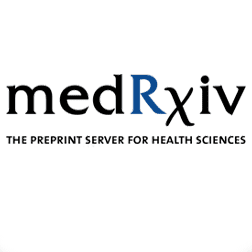Mito
Member
- Joined
- Dec 10, 2016
- Messages
- 2,554
SUMMARY
BackgroundAspirin has been proposed as a treatment for COVID-19 on the basis of its antithrombotic properties.
Methods In this randomised, controlled, open-label platform trial, several possible treatments were compared with usual care in patients hospitalised with COVID-19. Eligible and consenting adults were randomly allocated in a 1:1 ratio to either usual standard of care plus 150mg aspirin once daily until discharge or usual standard of care alone using web-based simple (unstratified) randomisation with allocation concealment. The primary outcome was 28-day mortality. The trial is registered with ISRCTN (50189673) and clinicaltrials.gov(NCT04381936).
Findings
Between 01 November 2020 and 21 March 2021, 7351 patients were randomly allocated to receive aspirin and 7541 patients to receive usual care alone. Overall, 1222 (17%) patients allocated to aspirin and 1299 (17%) patients allocated to usual care died within 28 days (rate ratio 0·96; 95% confidence interval [CI] 0·89-1·04; p=0·35). Consistent results were seen in all pre-specified subgroups of patients. Patients allocated to aspirin had a slightly shorter duration of hospitalisation (median 8 vs. 9 days) and a higher proportion were discharged from hospital alive within 28 days (75% vs. 74%; rate ratio 1·06; 95% CI 1·02-1·10; p=0·0062). Among those not on invasive mechanical ventilation at baseline, there was no significant difference in the proportion meeting the composite endpoint of invasive mechanical ventilation or death (21% vs. 22%; risk ratio 0·96; 95% CI 0·90-1·03; p=0·23). Aspirin use was associated with an absolute reduction in thrombotic events of 0.6% (SE 0.4%) and an absolute increase in major bleeding events of 0.6% (SE 0.2%).
Interpretation
In patients hospitalised with COVID-19, aspirin was not associated with reductions in 28-day mortality or in the risk of progressing to invasive mechanical ventilation or death but was associated with a small increase in the rate of being discharged alive within 28 days.

Aspirin in patients admitted to hospital with COVID-19 (RECOVERY): a randomised, controlled, open-label, platform trial
Background Aspirin has been proposed as a treatment for COVID-19 on the basis of its antithrombotic properties. Methods In this randomised, controlled, open-label platform trial, several possible treatments were compared with usual care in patients hospitalised with COVID-19. Eligible and...
